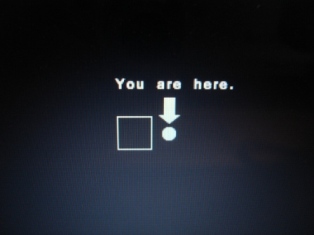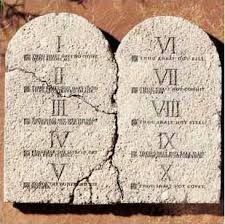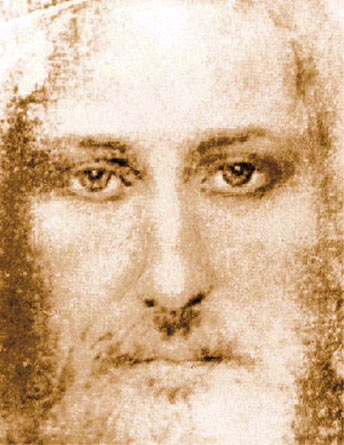I had some thoughts regarding the discussion on Adam and Eve, and, since unfortunately I can’t make it to Bible study on time, was not able to put out the ideas at Steve’s (and now that I’ve finished writing it all here, realized that perhaps it was better to write it out anyway, so you can read it or not, as you please!). I realize that this thought runs counter to what most people at the study seemed to be thinking, but in the spirit of good discussion and critical thinking, I will put it out anyway, and you can feel free to agree or disagree, and post a kind-hearted reply if you can add more light to my thinking. :)
I want to discuss the idea that other people besides Adam and Eve existed at the time of the initial creation of human beings. I realize that from a scientific point of view, the development of many human beings at once would be most sensible; and at first glance, it seems not to create any serious theological problems. On deeper reflection, however, I am disturbed by the possible implications of this hypothesis. For if not all humankind descended from Adam, then not all were subject to the same fall into sin. And if not all fell with Adam (being as yet inside him), not all were given the promise of redemption (crushing the serpent’s head as he strikes the heel, Gen. 3:15). And as Jesus is the second Adam, the life-giving spirit (1 Cor. 15:45), then only those descended from Adam’s sinful line would be saved through Christ. But in Romans 5:12-19, Paul seems to be saying that sin came to all through the one man, Adam, and reconciliation to all through the second Adam, who is Christ.
So, if other human beings were around but not in the line of Adam, then are they not saved through Christ? For the story only works when Christ is the savior of the entirety of Adam’s line. If others were there, but not part of Adam, is their redemption then outside of Christ? As in, they may be saved through Buddhism, Taoism, Hinduism, or whatever is indigenous to their culture? Is Christ only the answer and completion to the Hebrew “myth,” if that is what we’re calling it, or is He the savior of all? “Lord, to whom shall we go? You have the words of eternal life. We believe and know that you are the Holy One of God,” said Peter (Jn. 6:68). Is this true? If other words of life, means of salvation, are out there, how am I to know that I am descended from Adam and therefore under the salvation of Christ? And what reason would Paul have had to spread the gospel to the Gentiles, if they perhaps had not even descended from Adam? Could not their gods save them, completing whatever creation myths they believed?
This is where, it seems to me, this manner of thinking could go. Is this what we want?
If not, I perceive several ways around it. First, to interpret the passage as meaning that Adam and Eve are indeed the father and mother of all the living (Gen. 3:20: “The man called his wife Havah [life], because she was the mother of all living” [CJB]). As they lived a very long time, they could have had many children (as is mentioned in Gen. 5:4). Perhaps not all of these children were born after Seth, and perhaps these were the people Cain feared as he left the presence of God and from among whom he chose a wife. It may not be extremely plausible to the scientific mind, but to my simple mind, it seems a possibility.
Another possible solution is to consider the flood. As Noah and his family were descended from Adam (and, by the way, not from Cain, whose descendants all perished in the flood), then of course all people subsequent to the flood would have been children of Adam (provided that we are considering the flood to have been an actual worldwide event).
The third and most tenuous solution would be more philosophical than literal. That is the notion that Christ is the savior of all humankind (and indeed, all creation), but that he fulfills the mythology of each culture in a way unique and perfect to it. So to the Hebrew culture He is the Messiah prophesied in Isaiah, the sacrificial lamb of the Exodus, and the second Adam prefigured in Genesis. To another culture he may be the fulfillment in another way, of which I yet have no understanding, since my cross-cultural knowledge is limited. Yet for all cultures He would be the fulfillment, completion, Savior.
I am beginning to rather like the last option. However, I do have some trouble with it, as it seems dangerously close to what my atheist/Buddhist/Hindu/Jain friend said about Bodhisattvas. A Bodhisattva, as I understand it, is an enlightened human being who has escaped the wheel of suffering through good karma but chooses to postpone his or her entrance into nirvana in order to help the rest of the human race achieve the state of blessedness as well. In this view, Buddha, the Dali Lama, and other such revered teachers are considered Bodhisattvas. As my friend sees it, Christ is just another Bodhisattva, an incarnation of god among many others, and one can choose to follow whichever of these one likes—or to follow none at all, but simply trust one’s own inner enlightenment (inner god) through the practice of meditation. Books (and churches), my friend says, are a waste of time, and are just people trying to get you to believe whatever it is they believe so they can control you. So, is Jesus just another enlightened one, one among many that lead along the path of blessedness (which is, it seems, really a way to save oneself), or is He the true, literal, actual (and included in that is also metaphorical) Savior of all humanity?




































